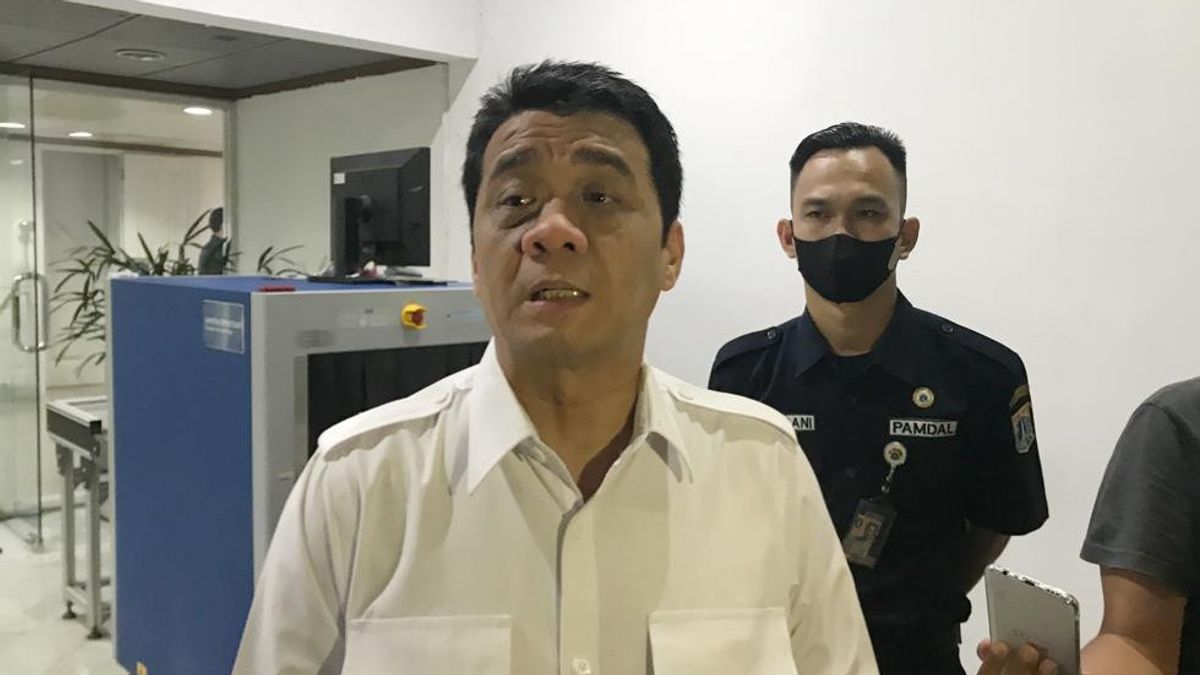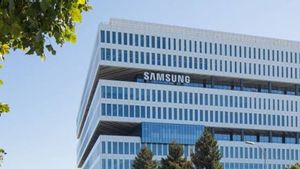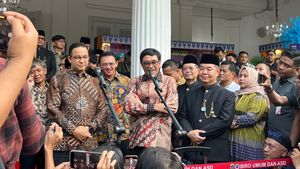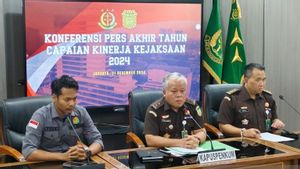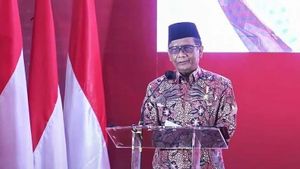JAKARTA - The condition of Jakarta again became the city with the worst air quality in the world this morning. Responding to this condition, Deputy Governor of DKI Jakarta, Ahmad Riza Patria, said that the Jakarta Langit Biru program cannot be implemented in an instant and requires time.
This program is stated in the DKI Governor's Instruction Number 66 of 2019 concerning Air Quality Control. A number of policies carried out by the Governor of DKI Jakarta Anies Baswedan in this program include the odd-even expansion, the implementation of emission tests, and the increase in people's transition from using private vehicles to public transportation modes.
"Air pollution is still one of our homework in Jakarta. The Blue Sky (Jakarta) program is not easy. It takes time," said Riza at DKI Jakarta City Hall, Monday, June 20.
Riza said that the Jakarta Provincial Government cannot control the air quality in Jakarta itself. Riza admitted that his party needed cooperation with buffer zones and the central government to solve this air pollution problem.
"Reducing vehicles, testing emissions, increasing green open spaces, (controlling) the chimneys of existing factories, are all attached to each other. We can't do it unilaterally. Everything must be comprehensive, the program is drawn up," he said.
As is known, Jakarta is again the city with the worst air quality in the world this morning. The poor air quality in Jakarta has been recorded for the past few days. This morning, the air quality data agency IQ Air ranked Jakarta as the most polluted city with an air quality index of 173 on Monday, June 20 at 09.35 WIB.
Launching from the official website of IQ Air in Jakarta, the air quality of the capital city is categorized as unhealthy because the concentration of PM2.5 is currently 27.4 times the annual air quality guideline value of the World Health Organization (WHO). The concentration of PM2.5 in Jakarta is at 136.9 grams per cubic meter.
PM2.5 refers to certain microscopic materials with a diameter of 2.5 micrometers or less, with various detrimental effects on human health and the environment, and therefore is one of the main pollutants used in calculating the air quality of a city or country as a whole.
Based on the BMKG analysis, the high PM2.5 concentration in Jakarta is influenced by various emission sources, both from local sources, such as transportation and residential areas, as well as from regional sources from industrial areas close to Jakarta.
The English, Chinese, Japanese, Arabic, and French versions are automatically generated by the AI. So there may still be inaccuracies in translating, please always see Indonesian as our main language. (system supported by DigitalSiber.id)
